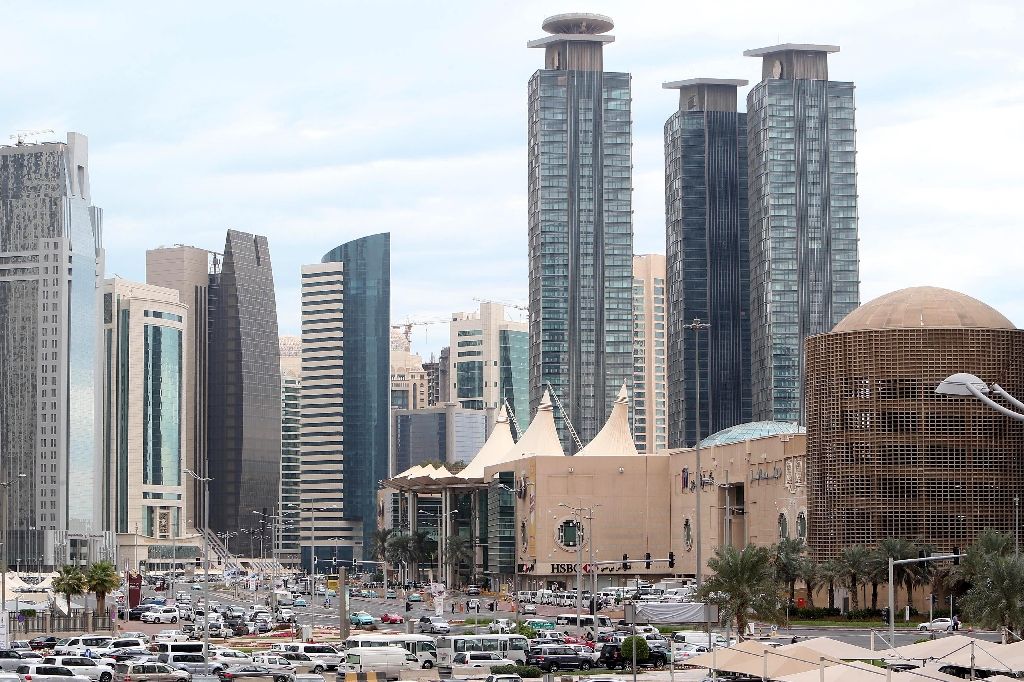Forty-five days have passed since Saudi Arabia, the United Arab Emirates, Bahrain and Egypt took their measures against Qatar. A Kuwaiti mediation tried and strove to resolve the crisis, but the isolated party ensured its failure from the very beginning when it leaked the demands of the four Arab countries. It then went beyond that and did not even comply with any of them.
The foreign ministers of the United States, France, Britain and Germany toured the region and their luck was not any better than Kuwait’s.
The four countries are firm in their stance and say that Doha signed the 2014 Riyadh agreement and has not committed to it, but it is time that it does. Any mediation less than that is unacceptable.
Qatar in return is insisting against respecting and committing to what it signed. It has announced that officially and boasts about it. It believes that playing the waiting game will be enough for the four countries to change their stance. It also believes that its reserve of 300 billion dollars will be enough to save it from the boycott of its neighbors.
As long as Doha believes that it can wage a long-term confrontation and insists on reneging on its pledges and as long as the four countries believe that they have shut the doorway of evil that has been open for too long, then there is no problem in filing away the Qatar crisis after the emirate has become isolated and unwanted. The crisis should be filed away until Doha regains its memory and seriously and rationally deals with the problem. As long as it does not change its political ideology, then its neighbors will be better off continuing on a path that does not include it.
The Saudi cabinet stressed its firm stance in continuing the measures adopted by the four countries until the Qatari authorities completely comply with the fair demands, which include confronting terrorism and achieving security and stability in the region. This is a stance, that since day one of the crisis, the countries have not wavered on.
UAE State Minister for Foreign Affairs Anwar Gargash said from London’s Chatham House on Monday: “We want a permanent solution and not one that will prolong the crisis. Diplomacy will remain our main course and we have said in the past that we will not escalate the situation beyond what is permitted by international law.”
Indeed, the permanent solution of rehabilitating the Qatari regime will require the four countries to continue their decision to clip Doha’s political nails that have scratched so much that blood has been shed everywhere.
Any temporary solution will only exacerbate the crisis and the region will once again return to square one. Without a permanent and radical solution the crisis will continue and with greater intensity. The difference this time is that the Qatari policy will operate in dark rooms and it will be alone and isolated on its path. It will not regain the ties that it exploited terribly in order to target the national security of its neighbors.
The four countries have succeeded in cutting the road halfway for Qatar. It will cross the remaining road when Doha expresses its desire to return to their fold and implement the commitments that are required of it.
It is certain that Qatar, which Gargash described as far back as 1995 as a “rebel looking for a cause” and which has found its way with extremist movements, will not be able to again play this revolutionary role. After today, it will no longer be able to spark fires throughout the region and be the only side with a firetruck.
One after the other, western foreign ministers left the area without being able to give Doha what it is bargaining on. The stances of Saudi Arabia, Egypt, Bahrain and the UAE are firm, their vision is clear and the commitments are known.
Gradually, Qatar will run out of options and the world, except for Iran and Turkey, is no longer even that concerned with its crisis. The days have gone by and it has found itself isolated after everyone washed their hands clean of it. If it was capable, as it claims, to confront the measures taken against it, then this is its decision and choice. The upcoming months will be a tough test of its claims.
The Kuwaiti mediation still stands and is ready to search for a solution and not waste time in international tours. As for the four countries, it is enough that they kept on giving Doha chance after chance. They have placed its crisis above all others because they are eager for their “sister” to return to them.
It is time however for them to walk without her as they have several crises and files to deal with in the next phase and away from Qatar, which ultimately chose to isolate itself.
